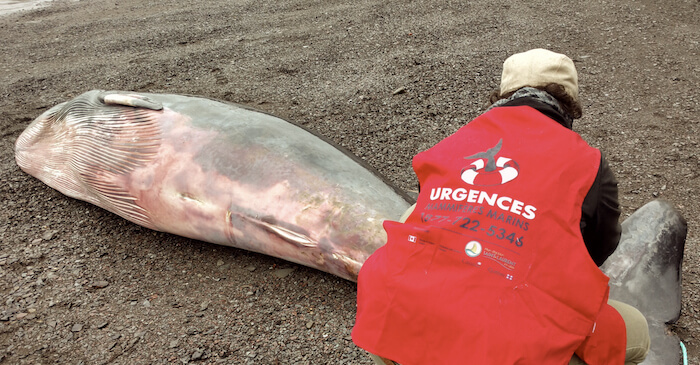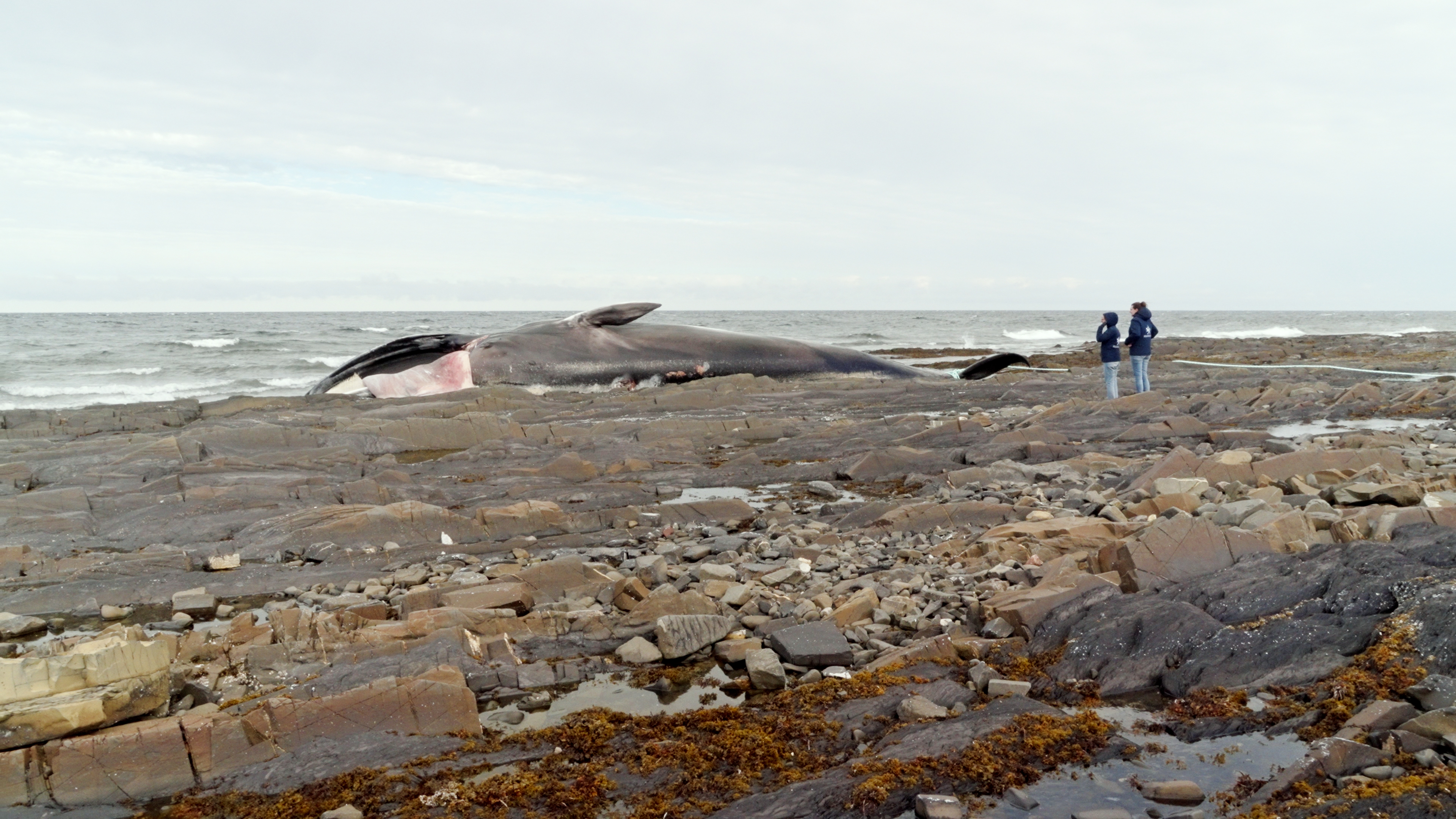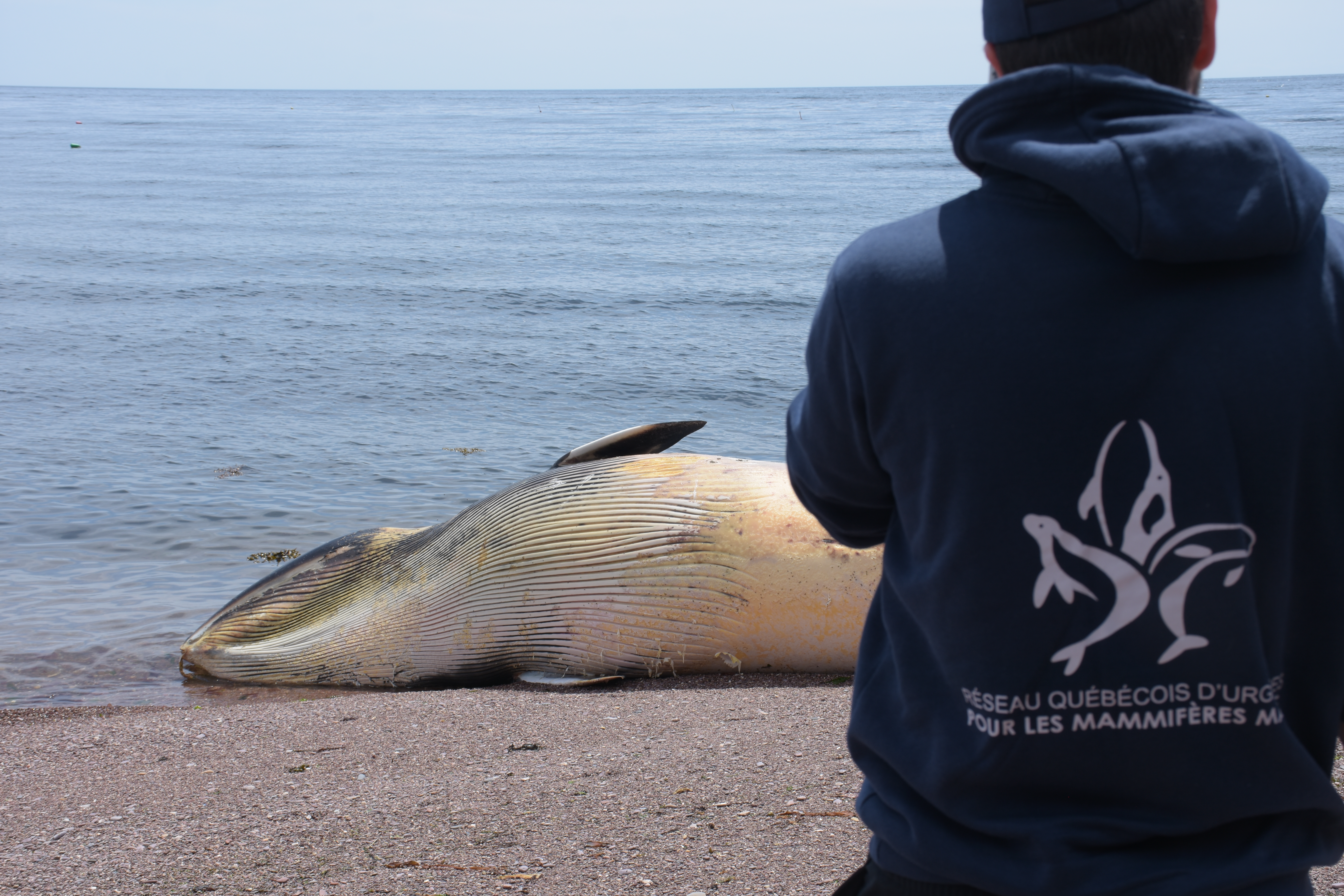In order to comply with current government guidelines for COVID-19, the Quebec Marine Mammal Emergency Response Network (QMMERN) is continually assessing its strategy for responding to incidents involving dead or vulnerable marine mammals. The QMMERN call centre will continue to operate 24 hours a day, 7 days a week. We are always reachable at 1-877-722-5346 to handle any reports of dead or vulnerable marine mammals. However, the interventions normally deployed by QMMERN and its network of volunteers will be suspended until further notice, regardless of the species or type of case.
QMMERN will continue its awareness and prevention work online via Whales Online, the social networks and by phone.
Now more than ever, public reporting is essential to enable QMMERN to document dead or vulnerable seals and cetaceans. The information shared by witnesses will now be the only data collected by QMMERN.
What should you do if you come across a dead or vulnerable seal or whale?
Contact us immediately at 1 877-722-5346. The call centre agent will ask you to provide the most detailed description possible, as well as photos to better document the situation.
Here is the most important information to remember:
- Keep your distance!
- It is imperative that you stay safe and comply with the law in terms of approach distances. Refrain from approaching within 50 metres of a live seal and 100 metres of a live whale (400 m for species at risk such as belugas, blue whales and North Atlantic right whales).
- If you discover a carcass, do not touch it and do not allow your pets to approach it. Otherwise, there is a risk that diseases can be transmitted.
- Take photos and/or videos.
- Visual documentation is essential for us, as it helps us to positively identify the species and better understand the situation.
- Describe the animal (approximate size, condition, etc.)
- Note the location of the animal as precisely as possible (address and GPS coordinates, if possible)
- Note whether or not it might represent a nuisance or danger to the general public.
For cases that may have an impact on public safety, the QMMERN call centre will notify the most relevant authorities. Only these bodies will be authorized to intervene in accordance with their own procedures.
We are well aware that such measures will lead to significant gaps in QMMERN’s scientific data. These decisions have been made in cooperation with partners from the Université de Montréal’s Faculty of Veterinary Medicine and Fisheries and Oceans Canada. For the time being, our main priority is to participate in collective efforts to lower the risks of spreading COVID-19.
We will continue to communicate any developments that might impact the Quebec Marine Mammal Emergency Response Network or its response strategy.





